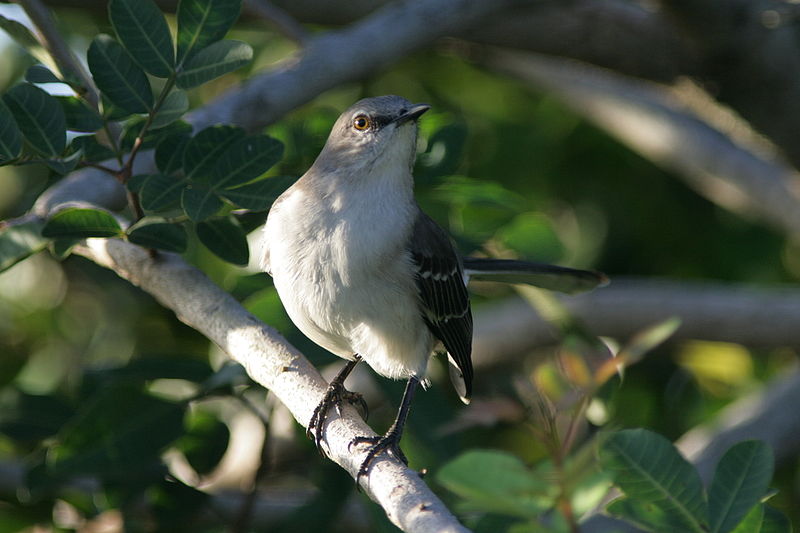Okay, spring is officially here. A few days ago, and all at once, the mockingbirds started singing.
Mockingbirds are the most spectacular vocalists in the bird world, at least here in North America. They are not only great mimics, but they are arrestingly powerful singers, especially the males. The females sing a bit more quietly, but a male will perch somewhere prominent and absolutely blow you away, and if he’s a single male, he might go on all night. I have so often stood spellbound on a quiet night, when the whole city is dark and silent but for a single song ringing across the landscape from the top of a chimney somewhere. Mockingbirds are awesome. And they’re common. You don’t have to go anywhere at all to hear one.
They’ve been observed cycling through the songs of 55 different species in just one hour, and a single male can have a repertoire of up to 200 songs. Not all of them are bird songs, either. They’ll mimic car alarms, squeaky hinges, you name it. And if you hear one singing, you’ll be able to find him. It’s all about being seen.
But what I wanted to know was, why do they do it? What function does mimicry serve? I can be a hopeless romantic where nature is concerned, but I know that things in nature, for all their beauty, always have a purpose, and I was curious about this one. Pick up any text book and it will casually say that they do it “to attract a mate.” Well, okay, but I wasn’t satisfied with that. Here’s what puzzled me: Mating rituals, which is what this is, are there for several reasons, and one of them is to prevent someone mating with the wrong species. It may sound funny, but when you have a pea-sized brain it can be an easy mistake to make. And, evolutionarily, it would be a fatal mistake. So mechanisms have evolved to prevent it: no one gets in an amorous mood until they hear the right song, or see the right display.
By that measure you would think this mockingbird must be crazy. Is he trying to solicit sexual advances from the females of every species but his own? It didn’t make sense to me.
I had to do a fair amount of digging through obscure research papers to get to it, but I finally found an explanation I liked. It turns out that their songs may impress us, but they don’t fool the other birds. In fact, they don’t fool the female mockingbirds either. She knows full well that this inspirerd performance is coming from a male mockingbird, and in fact she assesses it with a critical ear. Research has shown that the females are more attracted to a male with a larger collection of songs. And here’s the point: It takes time to learn them all.
She’s looking for experience, that’s what this is about. She wants maturity. She wants a mate who’s proven he knows how to survive.
Now you know.

